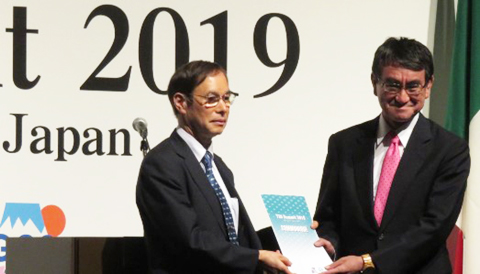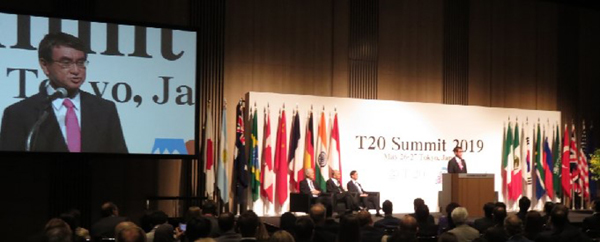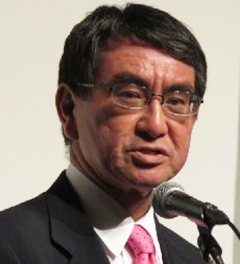News
Renown Think Tanks Release a Communique to Prompt Strong Leadership by G20 Nations in Solving SDGs-related Agendas Updated in July 2019
T20, a group of world’s renown think tanks held consecutive meetings during May 26-27 in Tokyo to boost achievement of Sustainable Development Goals (SDGs) in the upcoming Osaka G20 (Group of 20) leaders’ summit scheduled for June 28-29. On the closing day May 27, T20 announced a joint-communique containing policy recommendations in view of the upcoming G20 meeting and was it was handed over to Japan’s Foreign Minister Taro Kono. It asks for strong G20 leadership to counter critical global concerns like the widened income gap and the rise of protectionism that can arise from structural changes in our world today.
The joint-communique was compiled through specialists’ research and analyses from 10 different working groups or Task Forces. Besides the main statement, it is made up of 10 sections. The main statement mentions that “negative aspects of globalization like the growing income gap, poverty reduction, climate change and so forth are still unsolved.” It goes on to say that the G20 countries still face challenges like risks from digital innovations that are affecting the labor market, the aging population, immigrants, protectionism and various other pending issues caused by fundamental changes in our world today.
The T20 experts point out that shared common visions are necessary for us to counter these agendas and that the leadership of G20 countries play a crucial role in achieving solutions.
In regard to SDGs-related recommendations, experts said it is important “to create alternative mechanisms for science, technology and innovation cooperation so that developing countries could build technological financial capabilities.” As for climate change, it was suggested to “construct a fulfilling decarbonized society through innovation, appropriate technologies, and community-based renewable projects.” To adapt to the digital age, it was recommended to “promote digital literacy and other future-oriented skills.” Regarding the aging population, a common agenda to many countries, experts requested to “develop data systems, policy tools and analysis pertaining to the impacts of demographic change.”

Left: Dean Naoyuki Yoshino of Asian Development Bank Institute (ADBI)
The “T” for T20 stands for think tank. This meeting was co-hosted by the Asian Development Bank Institute (ADBI), the Japan Institute of International Affairs (JIIA), and the Institute of International Monetary Affairs (IIMA). There were about 500 participants from 50 countries around the world.
On May 26, Prime Minister Shinzo Abe sent a video message saying that Japan would like to express “how important it is for G20 countries to cooperate and commit to agendas faced by the international community” and that “T20 is one of the key engagement groups in the G20.” He hoped for fruitful discussions. At the closing session on May 27, Foreign Minister Kono said that “there is no doubt that we must create a sustainable, inclusive and resilient society. How to approach these issues is a big agenda in itself, but the T20 has thoroughly discussed major concerns and summarized them in the communique. I would like to bring forth these policy recommendations to the G20 summit.”


Reference:
https://www.adb.org/adbi/t20-japan-2019
https://t20japan.org/wp-content/uploads/2019/05/t20-japan-2019-communique-eng.pdf







